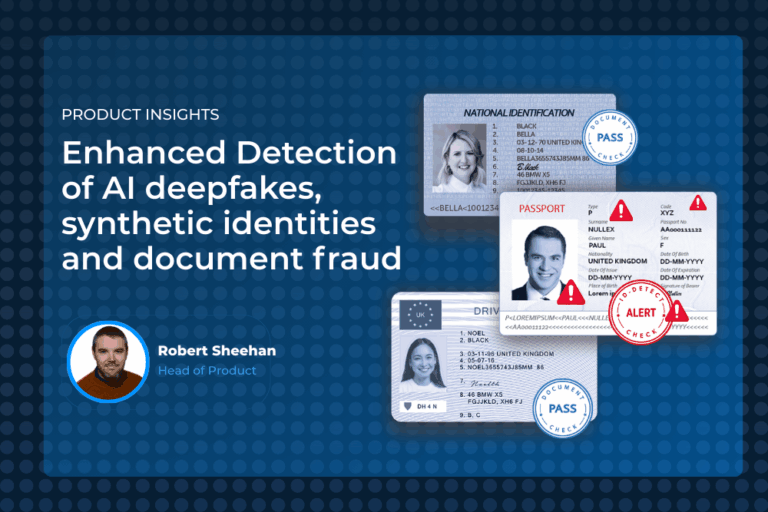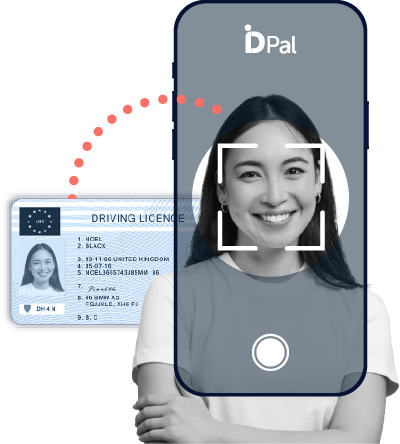The EU Digital Identity Wallet is coming soon
Rob O’Farrell, Chief Technology Officer
Digital identity is changing in Europe. By the end of 2026, every European Union member state must offer its citizens and residents a national digital identity wallet. These are collectively known as the EU Digital Identity Wallet.
The European Union’s regulatory framework for digital identity, eIDAS, is already in force and implementation is moving fast. By July 2027, all regulated businesses will be required to accept the EU Digital Identity Wallet as a valid form of identification.
The timeline is short and for people and businesses it looks set to transform how digital identity is shared verified and trusted. Done right, the digital wallet unlocks greater privacy, faster onboarding and simpler access to services. But not all wallets will offer the same level of assurance and additional checks will often be required.
“We’re ready to support EU Digital Identity Wallets that meet high levels of assurance and provide secure verification that a person is present and the genuine owner of the identity being presented.”
What is the EU Digital Identity Wallet?
An EU Digital Identity Wallet, or EUDI wallet, is a secure mobile app that will be issued or approved by a national government of the European Union and will allow citizens and residents of that country to share their verified digital identities.
Once an individual has secured access and connected to their national EUDI wallet, she will be able to prove her identity or personal identity attributes.
Instead of sharing a scanned ID document, the EUDI wallet shares certified personal identity attributes; specific identity data such as name, address or date of birth, or a simple, certified proof of age or the right to drive. This means she can prove ‘I am over 18’ or ‘I hold a valid driver’s license’ without handing over the actual document.
These personal identity attributes are digitally signed by the issuing authority and can be cryptographically verified. The wallets are designed to work across Europe, only to share data that is needed and to be easier to validate electronically.
The EU Digital Identity Wallet represents a shift away from the familiar world of ID documents to certified digital credentials.
What will the EU Digital Identity Wallet change for my business?
From July 2027, any organisation subject to Anti-Money Laundering (AML) regulations, such as banks and financial services, insurance and telecoms companies, must be ready to accept a valid EU Digital Identity Wallet for identity verification and authentication.
This has important operational and technical implications for business
- Your business cannot require an individual to verify her identity by scanning and uploading her ID if she prefers to use her EUDI wallet.
- Your customer onboarding system must be ready to receive and validate personal identity attributes from each national version of the wallet.
- Your business must decide which verified identity attributes to request at onboarding and whether additional identity checks are required to mitigate risk.
In other words, the EU Digital Identity Wallet must be accepted, but the responsibility to ensure an individual’s credentials are sufficient to meet your regulatory requirements and risk appetite remains your business’ responsibility.
Is the EU Digital Identity Wallet secure?
This is one of the most common and important questions concerning any form of digital identity verification and the EU Digital Identity Wallet is no exception.
The short answer is that EUDI wallets will be secure, but they will not all manage security in the same way. Common security factors will include strong encryption, multi-factor authentication and limiting data sharing to those personal identity attributes approved for use by the owner.
In many cases, however, EUDI wallets will not require face recognition to biometrically verify the wallet holder’s identity when sharing personal identity attributes. Possession of the device and device security, such as a PIN or fingerprint, may be the only security. This means that if the owner’s device is compromised, fraudulent sharing could take place without consent.
To mitigate this, eIDAS defines three levels of assurance or the degree of confidence in the claimed identity of a person: ‘Low’, ‘Substantial’ and ‘High’. Only the Substantial or High levels of identity assurance are appropriate to support most regulated verification requirements, including KYC under the EU’s Sixth Anti-Money Laundering Directive (AMLD6).
ID-Pal is integrating wallet support into our existing verification flows, with the same high standards of security and trust.
How is ID-Pal supporting the EU Digital Identity Wallet?
Here at ID-Pal, we believe trust distinctions matter. We’re ready to support EU Digital Identity Wallets that meet high levels of assurance and provide secure verification that a person is not only present but the genuine owner of the identity being presented.
To ensure your business makes a smooth, secure transition we are
- monitoring every version of the EUDI wallet as they rollout across the European Union to ensure readiness and compliance.
- ensuring the ID-Pal platform is ready to accept identity attributes held in a EUDI wallet in the same seamless verification journeys our business customers already use.
- ensuring ID-Pal systems support the EUDI wallets’ certified data formats and deliver compliance with AMLD6 KYC regulations and audit obligations.
- continuing to deliver biometric identity verification and liveness checks to ensure genuine identity ownership and presence at customer onboarding.
- integrating anti-spoofing protections to prevent identity fraud, including presentation attacks, screen recapture and deepfake identity attacks.
As your business gets ready for EU Digital Identity Wallets, we’re ready to support you and support EUDI wallets and personal attribute data formats that provide the necessary level of assurance and trust.
Digital identity is changing in Europe
The introduction of the EU Digital Identity Wallet is an important milestone in the evolution of digital identity and service delivery across Europe. It promises greater privacy, faster onboarding and simpler access to services.
With no single EU platform, however, how the many national EUDI wallets will deliver on that promise and those shared standards remains to be seen. That’s why ID-Pal remains focussed on delivering a single, integrated platform that accepts compliant digital identities from across the European Union, and beyond, and continues to protect your business from identity fraud.
Digital identity is evolving. We’re here to make sure your business evolves with it — confidently, securely and without disruption. If you want to understand how the EU Digital Identity Wallet affects your customer onboarding and compliance, get in touch with the ID-Pal team.




